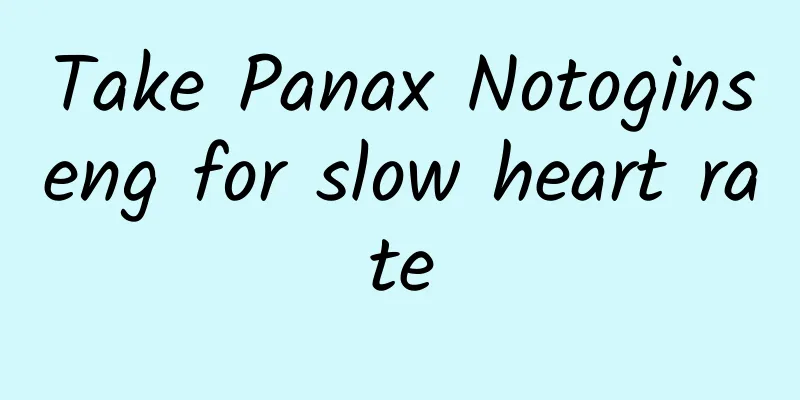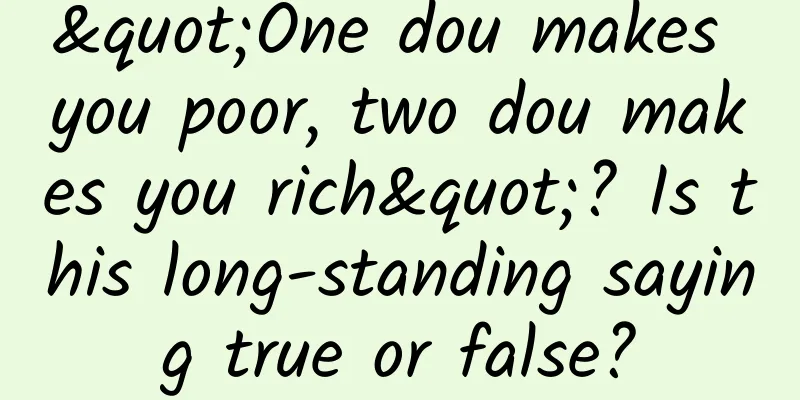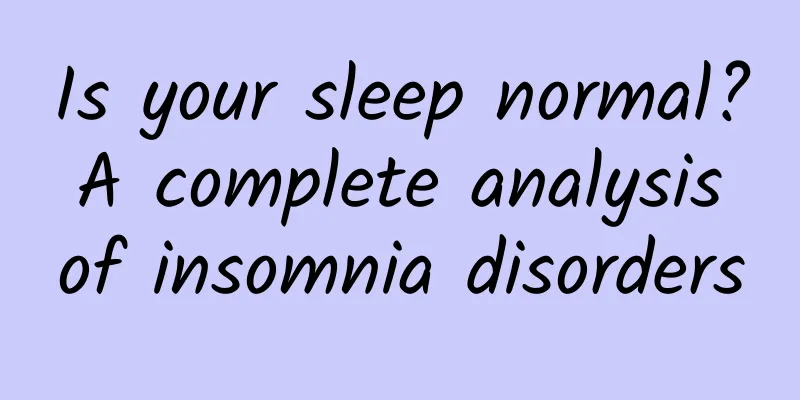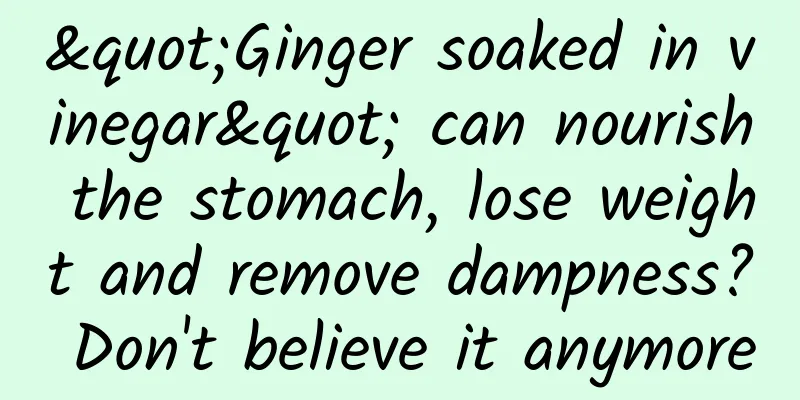Take Panax Notoginseng for slow heart rate

|
Panax notoginseng is a Chinese medicinal herb that we are all familiar with. As people admire traditional Chinese medicine, many patients will go to traditional Chinese medicine hospitals for treatment when they are sick. As a common medicine, Panax notoginseng is gradually becoming familiar to people. But everyone should also know that Panax notoginseng can not only treat all diseases. So, can eating Panax notoginseng have any effect on patients with bradycardia? Causes of slow heart rate Slow heartbeat refers to a heartbeat below 60 times per minute, also known as bradycardia. Clinically, there are many causes of slow heartbeat, the most common of which are as follows: 1. Conduction block: The beating of the human heart is directed by the sinoatrial node. Conduction block is caused by lesions in the atrial node or myocardium, which prevents the command issued by the sinoatrial node from being transmitted, and the heart rate slows down. 2. Changes in vagus nerve tone: When the vagus nerve is excited, its endings can release a substance called "acetylcholine", which has an inhibitory effect on the heart and can slow down the heartbeat. 3. Changes in sinoatrial node function: Pathologies of the sinoatrial node itself can cause a slow heartbeat, with the heart rate being about 40 beats per minute. Dangers of slow heart rate If the heart rate is too slow for a long time, the body will suffer from hypoxia and ischemia due to insufficient blood "pumped" by the heart, and the compensatory ventricles will speed up their movement to supply blood. However, excessive ventricular movement will cause insufficient blood return. If cardiac output is significantly reduced, a series of symptoms such as dizziness, headache, and tinnitus will appear. In severe cases, coma and convulsions may occur. Due to insufficient blood supply to the coronary arteries, patients may suffer from angina pectoris or even myocardial infarction. Causes of a fast heart rate (1) Physiological: Changes in body position, physical activity, food digestion, anxiety, pregnancy, excitement, fear, agitation, drinking, smoking, drinking tea, etc. can all increase the heart rate. (2) Drug-induced: Some drugs can cause a person’s heart rate to accelerate, such as sympathomimetic drugs like ephedrine and adrenaline. Parasympathetic blocking drugs such as atropine, caffeine, thyroxine, amphetamine, etc. can cause tachycardia. (3) Pathological: Some systemic diseases can also cause a faster heartbeat: high fever, anemia, hypoxia, infection, hyperthyroidism, pain, acute rheumatic fever, beriberi and neurosis can cause tachycardia. (4) Cardiovascular disease: Acute blood loss, hypotension and shock, arteriovenous fistula, heart failure, myocarditis, cardiomyopathy, pericarditis, acute myocardial infarction and various organic heart diseases can all lead to sinus tachycardia. |
<<: Does eating Panax notoginseng and causing diarrhea mean detoxification?
>>: Can Panax notoginseng be eaten in summer?
Recommend
The Paris Olympics will use a purple running track. How difficult is it for humans to achieve "purple freedom"?
There are less than 100 days until the 33rd Summe...
The efficacy and function of Centipede vine
There are so many medicinal herbs in the world, a...
What are the medicinal values of hawthorn flowers?
Hawthorn flower, as the name suggests, this is th...
"Tianwen" is launched! my country's planetary exploration mission is officially named "Tianwen"
On the occasion of the fifth China Space Day, the...
What is the nutritional value of Cistanche deserticola
There is a reason for every kind of food to exist...
This "holy medicine" for curing diseases must have grown in your field.
Traditional Chinese medicine is a unique medicine...
Fly high into the sky and see the green mountains and clear waters on earth!
On August 4, the world's first forest carbon ...
The efficacy and function of ramie flowers
Many people are not very clear about ramie flower...
If people can reach the speed of light, what will they see? The color of the world will become different
Why can we see this colorful world? Because of li...
Shocking! A female student from Shanghai International Studies University was thrown a "foreign object"! Multiple platforms urgently removed the app... What on earth is this?
Expert of this article: Liu Zhijun, Pharmacy Depa...
The efficacy and function of Chinese medicine Senecio
Do you know the effects and functions of the trad...
Trivia about how the ancients repelled mosquitoes
Annoying mosquitoes are not only a headache for m...
What are the effects of Epimedium and Poria?
In normal life, we often hear many women complain...
The role of gypsum powder
Gypsum powder is mainly used for base treatment. ...







![The efficacy and role of Xiaohuanggou [picture]](/upload/images/67ca1bf16e835.webp)

